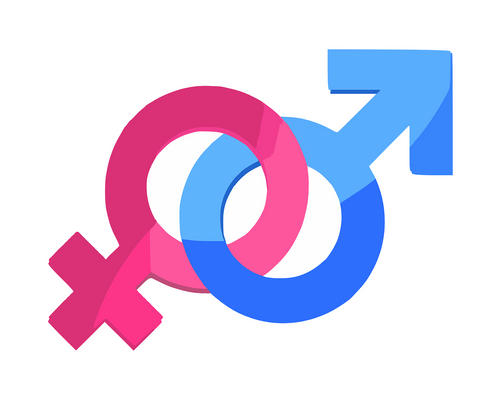5.1.1
The Body
The Body as a Social Construction
The Body as a Social Construction
Sociologists see the human body as both socially and biologically constructed. This view informs sociological beliefs about health and illness, as well as mental health.
Sociological Approaches to the Body
Sociological Approaches to the Body
Different sociological approaches, such as postmodernist, feminist and marxist approaches, all have different perspectives regarding how we construct our bodies.


Postmodernist approaches
Postmodernist approaches
- Featherstone believes that human bodies have become vehicles for people to form their identities on consumer culture.
- Both men and women maintain and construct/shape their bodies by purchasing services and products that correspond to their individual identity project, such as cosmetics, surgery, health foods and body piercing.


Feminist approaches
Feminist approaches
- According to feminists, men and women construct their bodies to conform with the prevailing patriarchal norms of masculine and feminine identities.
- The media promote the ‘cult of thinness’ (Hesse-Biber), reinforcing patriarchal attitudes that help to control women, even if these attitudes to the body are damaging.


Marxist approaches
Marxist approaches
- According to Marxists, capitalist societies simply view the body as another means of making a profit – a lucrative business opportunity.
- Images of the body are used to sell products through advertising and other means.


Marxists feminist approaches
Marxists feminist approaches
- Marxist feminists argue that the body has become a commodity, particularly in the case of women, such as in sex work and the pornography industry.
1Theory & Methods
1.1Sociological Theories
1.2Sociological Methods
2Education with Methods in Context
2.1Role & Function of the Education System
2.2Educational Achievement
2.3Relationships & Processes Within Schools
3Option 1: Culture & Identity
3.1Conceptions of Culture
3.2Identity & Socialisation
3.3Social Identity
3.4Production, Consumption & Globalisation
4Option 1: Families & Households
4.1Families & Households
4.2Changing Patterns
4.3The Symmetrical Family
4.4Children & Childhood
5Option 1: Health
5.1Social Constructions
5.2Social Distribution of Healthcare
5.3Provision & Access to Healthcare
5.4Mental Health
6Option 1: Work, Poverty & Welfare
6.1Poverty & Wealth
7Option 2: Beliefs in Society
7.1Ideology, Science & Religion
7.2Religious Movements
7.3Society & Religion
8Option 2: Global Development
8.1Development, Underdevelopment & Global Inequality
8.2Globalisation & Global Organisations
8.3Aid, Trade, Industrialisation, Urbanisation
9Option 2: The Media
9.1Contemporary Media
9.2Media Representations
10Crime & Deviance
10.1Crime & Society
10.2Social Distribution of Crime
Jump to other topics
1Theory & Methods
1.1Sociological Theories
1.2Sociological Methods
2Education with Methods in Context
2.1Role & Function of the Education System
2.2Educational Achievement
2.3Relationships & Processes Within Schools
3Option 1: Culture & Identity
3.1Conceptions of Culture
3.2Identity & Socialisation
3.3Social Identity
3.4Production, Consumption & Globalisation
4Option 1: Families & Households
4.1Families & Households
4.2Changing Patterns
4.3The Symmetrical Family
4.4Children & Childhood
5Option 1: Health
5.1Social Constructions
5.2Social Distribution of Healthcare
5.3Provision & Access to Healthcare
5.4Mental Health
6Option 1: Work, Poverty & Welfare
6.1Poverty & Wealth
7Option 2: Beliefs in Society
7.1Ideology, Science & Religion
7.2Religious Movements
7.3Society & Religion
8Option 2: Global Development
8.1Development, Underdevelopment & Global Inequality
8.2Globalisation & Global Organisations
8.3Aid, Trade, Industrialisation, Urbanisation
9Option 2: The Media
9.1Contemporary Media
9.2Media Representations
10Crime & Deviance
10.1Crime & Society
10.2Social Distribution of Crime
Unlock your full potential with Seneca Premium
Unlimited access to 10,000+ open-ended exam questions
Mini-mock exams based on your study history
Unlock 800+ premium courses & e-books





